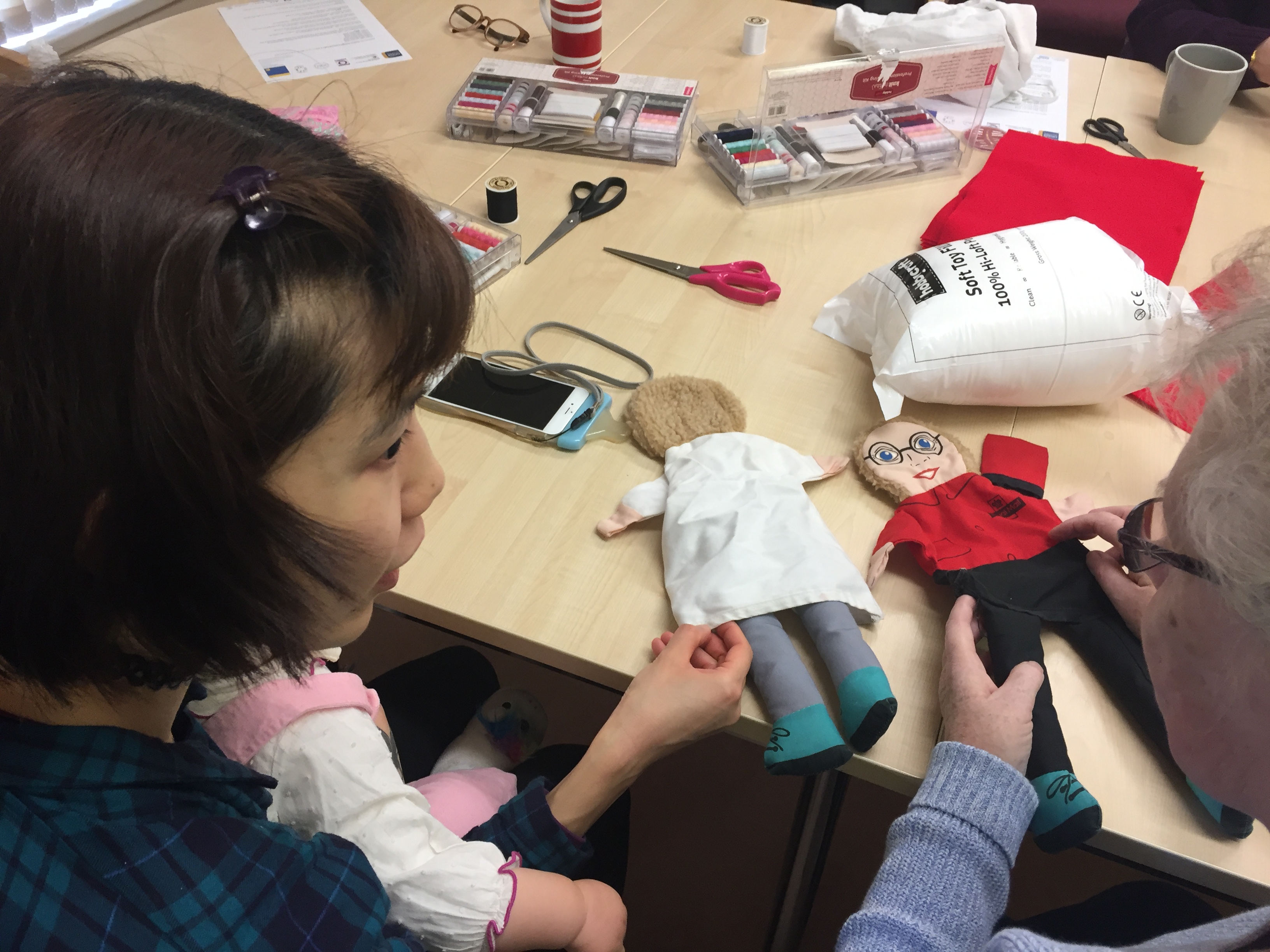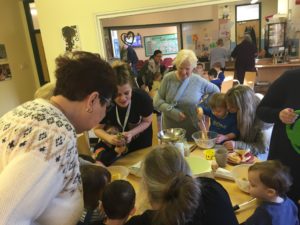Blog
Sustainable Skills Cafés: Older residents demonstrate traditional skills to young children

Diane Boyd, Senior Lecturer in Early Years at Liverpool John Moore’s University has been an advocate for education for sustainability in early childhood for many years. In this blog post she describes an exciting new initiative she has started in Liverpool –intergenerational Sustainable Skills Cafés.
Education for Sustainable Development is a growing global movement that nurtures knowledge, creativity, kindness, wisdom, critical thinking, empathy and many more of the skills and values that will allow sustainable development to flourish and a better world to emerge. The recently established Intergenerational Sustainable Skills Cafés Project in Liverpool is part of this movement. It is built on the idea that early childhood is a transformative period when young children start to develop attitudes and skills that can last a lifetime. Also, older members of any community are happy to share cultural traditions in an informal manner with the youngest members.
How does the project work? It encourages elderly residents that live close to a Children and Family Centre in a socio economically deprived area of Liverpool to come and demonstrate traditional skills to young children aged two to four years and their families. The activities offered at the café include cooking traditional recipes such as flap jacks and scouse, learning how to sew a button on a shirt and to use a sewing machine and introducing both children and families to simple knitting. Three monthly cafés have taken place so far and more are being planned. Each café offers new learning opportunities or refresh skills that are useful for anyone, young or old, who would like to live sustainably.
Local businesses and organisations have willingly been providing resources for the café, such as free sewing and knitting kits, stuffing for old teddy bears that the children and families can mend together. A free bicycle repair workshop has also been offered.
 As a consequence of working and sharing together in the café activities, perceived differences across generations and genders and stereotypes are being reduced. One three old girl remarked “all the Grandmas knitting” not expecting Grandpas or dads to knit. So far the experiences of the participants have been positive – the older adults feel that the children’s presence in their lives is a welcome addition to a sometimes lonely life. All involved in the Cafés are convinced children who spend time with older generations learn to respect and value those members of the community enabling different generations to co – exist more peacefully, hopefully leading to a more cohesive community.
As a consequence of working and sharing together in the café activities, perceived differences across generations and genders and stereotypes are being reduced. One three old girl remarked “all the Grandmas knitting” not expecting Grandpas or dads to knit. So far the experiences of the participants have been positive – the older adults feel that the children’s presence in their lives is a welcome addition to a sometimes lonely life. All involved in the Cafés are convinced children who spend time with older generations learn to respect and value those members of the community enabling different generations to co – exist more peacefully, hopefully leading to a more cohesive community.
This intergenerational Sustainable Skills Cafés Project is exactly what an ecological approach to early childhood education is about: promoting strong connections between children, family, community and society, leading to a sustainable community for all ages.
For more information about the Sustainable Skills Cafés Project, please contact Diane Boyd, Senior Lecturer in Early Years, School of Education, Liverpool John Moore’s University.